"Mankind has always feared what it doesn't understand." Plus: our seven favorite scenes
Credit: 20th Century Studios
Twenty-five years ago, X-Men became a summer blockbuster and effectively re-energized a then-flagging market for superhero movies, which have dominated the industry (for better and worse) ever since. It's still a vastly entertaining film, with great characters, a zippy pace, and plenty of action. And its broader themes still strongly resonate with viewers today.
(Many spoilers below.)
In the mid-1990s, the popularity of the animated X-Men TV series caught the attention of 20th Century Fox (now 20th Century Studios), who purchased the rights from a cash-strapped Marvel Comics and hired Bryan Singer (The Usual Suspects) to direct. At the time, the project was perceived by some as a bit risky, given waning Hollywood interest in the genre after 1997's disastrously campy Batman and Robin. But the gamble paid off: X-Men was a major hit, spawning its own franchise and ultimately the Marvel Cinematic Universe.
The film's central conflict rests on two former friends. Charles Xavier (Patrick Stewart) and Magneto (Ian McKellan), aka Erik Lehnsherr, are fellow mutants who find themselves at odds over how best to respond to the growing anti-mutant bigotry among humans. Charles, who runs a private school for mutant children, sees the good in humans and believes they can peacefully coexist; Magneto believes mutants are the future and humans should go extinct—preferably with his help. He's organized the Brotherhood of Mutants to further that aim: Mystique (Rebecca Romijn), Sabretooth (Tyler Mane), and Toad (Ray Park).
Charles in turn has his X-Men: Storm (Halle Berry), Jean Grey (Famke Janssen), and Cyclops (James Marsden), eventually adding a reluctant Wolverine (Hugh Jackman) to their ranks. Teenaged mutant Rogue (Anna Paquin) joins the school and becomes a target for Magneto, since her mutation enables her to absorb other people's life force and memories—and powers, in the case of the mutants. Together they must foil Magneto's plan to forcibly mutate humans via radiation (even if it kills them) and convince a hostile US government that most mutants do not pose a threat.
Credit:
20th Century Studios
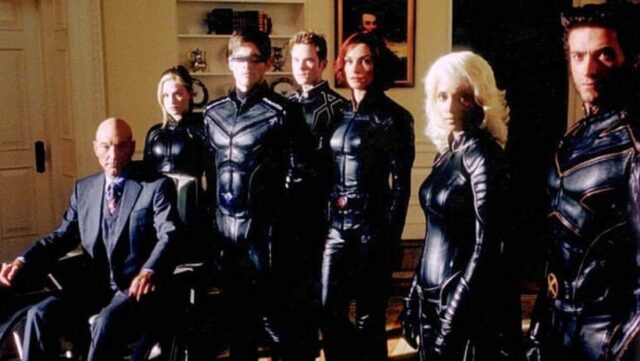
There's much to love about this film, including plenty of memorable standout scenes; seven of our favorites are featured below. It's got stellar casting, snappy dialogue, and breaks up the action with quieter character moment that advance the story without slowing the pace. X-Men also takes pains to establish key relationships: Charles and Magneto, Rogue and Wolverine, and the romantic triangle of Jean, Cyclops, and Wolverine. We care about these characters: their isolation, their pain at being feared and rejected because they're different, and the different ways they process those feelings.
Despite humanity's poor treatment of them, our mutant heroes are still willing to risk their lives to save an ungrateful humanity. That's what makes them heroes, even if it might be easier to believe that Magneto and the Brotherhood's open hostility to humans is justified. ("Mankind has always feared what it doesn't understand.") X-Men is hardly subtle about delivering its core message. The film pits bigotry and fear towards a targeted "other" vs. striving for acceptance and peaceful coexistence, unapologetically championing the latter. If any of that sounds suspiciously "woke"—well, as with Superman, it's not the film that's changed.
Without further ado, here are our seven favorite scenes in X-Men:
Young Eric at Auschwitz
Credit:
20th Century Studios
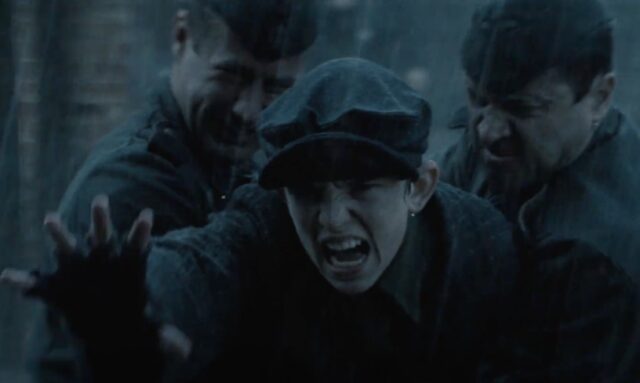
X-Men wastes no time setting up its primary theme. The very first scene takes place in Nazi-occupied Poland in 1944, where a young Erik Lehnsherr and his parents are being herded into a concentration camp by soldiers in the rain. Erik is separated from his parents, and the sight of his wailing mother being dragged away causes a distressed Erik to try to rejoin them. He's restrained by soldiers and his intensifying emotions unleash his mutant ability. He can manipulate magnetic fields, bending the metal gates keeping him from his parents into an "X" before the soldiers knock him unconscious.
Erik becomes Magneto, and those early experiences in the concentration camp indelibly shaped his character and world view, fueling his nefarious plans for mutants to displace humans as the dominant species on Earth. Lest we miss the point, the very next scene is Charles Xavier and Magneto listening to anti-mutant members of Congress calling for a Mutant Registration Act. Magneto insists that he knows firsthand where all this will inevitably lead; Charles counters that humans have changed for the better, perfectly encapsulating how these former friends turn into reluctant adversaries.
Wolverine's cage fight
Credit:
20th Century Studios
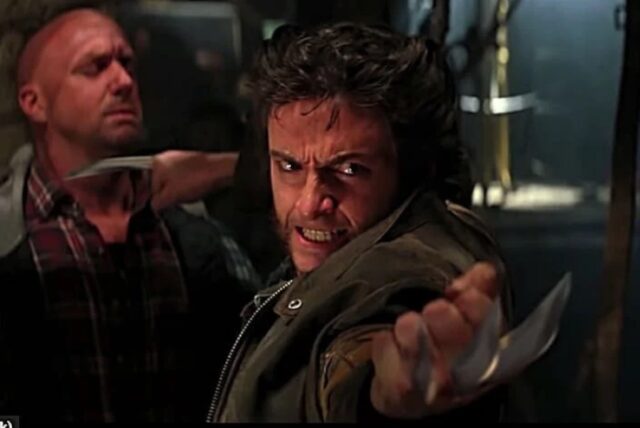
We first meet Wolverine at a dive bar in a remote wintry outpost, where a runaway Rogue also finds herself after getting a lift from a truck driver. He's earning few extra bucks by taking on all comers in a series of no-holds-barred cage matches—and easily emerging victorious each time. Rogue arrives just in time to see the latest challenger stride into the cage with all the unearned confidence of a man who has been drinking heavily for hours. "Whatever you do don't hit him the balls," the ref warns. Sure, the match is anything goes, "but he'll take it personal."
And Wolverine does, knocking the man out cold. Alas, the defeated opponent is also a sore loser, showing up after closing to confront Wolverine. "No man takes a beating like that and walks away," he says, adding "I know what you are." He pulls a knife and gets Wolverine's adamantium claws at his throat in response. Now that's how you introduce a central character.
Mystique kidnaps a senator
Senator Robert Kelly (Bruce Davison) is the main political antagonist in X-Men, hell-bent on passing that draconian mutant registration bill. He does not see mutants as people deserving of basic civil rights, but as "weapons in our schools.... If it were up to me I'd lock them all away." (Naturally he's also an isolationist, concerned only with the "mutant problem" in America.)
Little does he know that he's not actually talking to his loyal assistant, but to Mystique in disguise—with Toad piloting the helicopter he's just boarded. He's shocked when she transforms into her beautiful blue-skinned self: "You know people like you are the reason I was afraid to go to school as a child?" Then she kicks him unconscious and she and Toad transport him to Magneto's secret hideout. Honestly, Kelly had it coming. And things only get worse for him from here.
Wolverine accidentally stabs Rogue
Wolverine and Rogue's relationship is the beating heart of X-Men. He feels protective of her, as an older brother or an uncle might, but soon learns that she's not as defenseless as she seems. Hearing a distressed Wolverine talking in his sleep during a nightmare, Rogue goes to his bed to wake him—and he skewers her with his claws before he realizes what he's doing.
As he calls for help, Rogue puts her ungloved hand to his face, "borrowing" his mutant ability to heal herself. But it sends Wolverine into a seizure, just like the first boy who kissed her back in her hometown. It's a compelling scene that not only tells us more about Rogue's extreme mutant gift, but also strengthens her bond with Wolverine; she shared his power, however briefly, and admits at one point she can still feel him inside her head. Plus it serves as a handy catalyst for the next phase of Magneto's master plan.
Charles vs. Magneto at the train station
Storm and Cyclops catch up with a runaway Rogue at the local train station, only to be attacked by Sabretooth and Toad. They are there to retrieve Rogue for Magneto (who has already taken Wolverine out of the equation on the train). Coming out of the station with Magneto, they are met with a whole lot of law enforcement. Magneto makes short shrift of them—"You homo sapiens and your guns"—turning the firearms onto the assembled officers.
Charles attempts to intervene by telepathically communicating through Toad and Sabretooth, but Magneto fires just one gun and slows down the bullet as it starts to drive into an officer's forehead. Charles realizes he has lost this standoff and lets Magneto escape, with the latter issuing a parting shot: "Still unwilling to make sacrifices. That's what makes you weak." We know, of course, that the moment demonstrates Charles' admirable strength of character and the goal toward which all true heroes should aspire.
Senator Kelly dissolves
Senator Kelly (Bruce Davison) is turned into a mutant by Magneto. 20th Century Studios
Poor Senator Kelly. After Magneto blasts him with radiation to turn him into a mutant, he manages to escape, turning up at a local beach stark naked with translucent skin—just like the jelly fish a little boy has been tormenting seconds before. (Stan Lee makes a cameo as one of the shocked beachgoers.) Kelly can't go to a hospital, so he finds his way to Charles' academy to get help. But there's nothing Charles can do; the senator's body is rejecting the radiation-induced mutation at an accelerating rate.
When Storm comes in to check on him, he's started leaking water all over the table, and begs her not to leave him alone. Kelly asks if she hates normal people, and when Storm admits that sometimes she does, he asks why. "I suppose I'm afraid of them," she says. "I think you've got one less person to be afraid of," Kelly responds, right before his body rapidly bloats and then dissolves into a watery slurry. It's a great scene not just for his revelatory moment with Storm—seeing a mutant, finally, as a person rather than a weapon—but also for the special effects achievement at a time when the technology for rendering fluids like water was still very much in its infancy.
Wolverine saves Rogue
The big climactic battle is waged inside the Statue of Liberty, as the X-Men face off against the Brotherhood while Magneto straps Rogue into his radiation machine housed inside the torch (of course). The objective: targeting the World Summit leaders assembled on nearby Ellis Island and turning them into mutants. "Your sacrifice will mean our survival," Magneto assures her—although Wolverine rightly points out that if he were truly committed to the cause, he'd have sacrificed himself instead of temporarily transferring his power to Rogue.
Eventually the X-Men prevail and Wolverine destroys the machine, cutting Rogue free. But it might be too late: when he puts his hand to her skin, nothing happens. A grief-stricken Wolverine cradles her body in his arms with his face against hers—only for her power to suddenly kick in. As Rogue revives by draining his healing ability, every injury Wolverine sustained in the preceding battle becomes visible and he collapses, sacrificing himself to save her.
Okay, he eventually recovers too, because we need our happy ending. But it's a powerfully intimate moment that builds on everything that came before—and helps fuel what comes after.
Jennifer is a senior writer at Ars Technica with a particular focus on where science meets culture, covering everything from physics and related interdisciplinary topics to her favorite films and TV series. Jennifer lives in Baltimore with her spouse, physicist Sean M. Carroll, and their two cats, Ariel and Caliban.

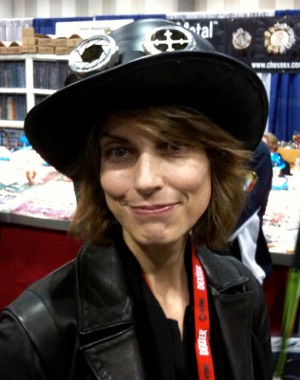




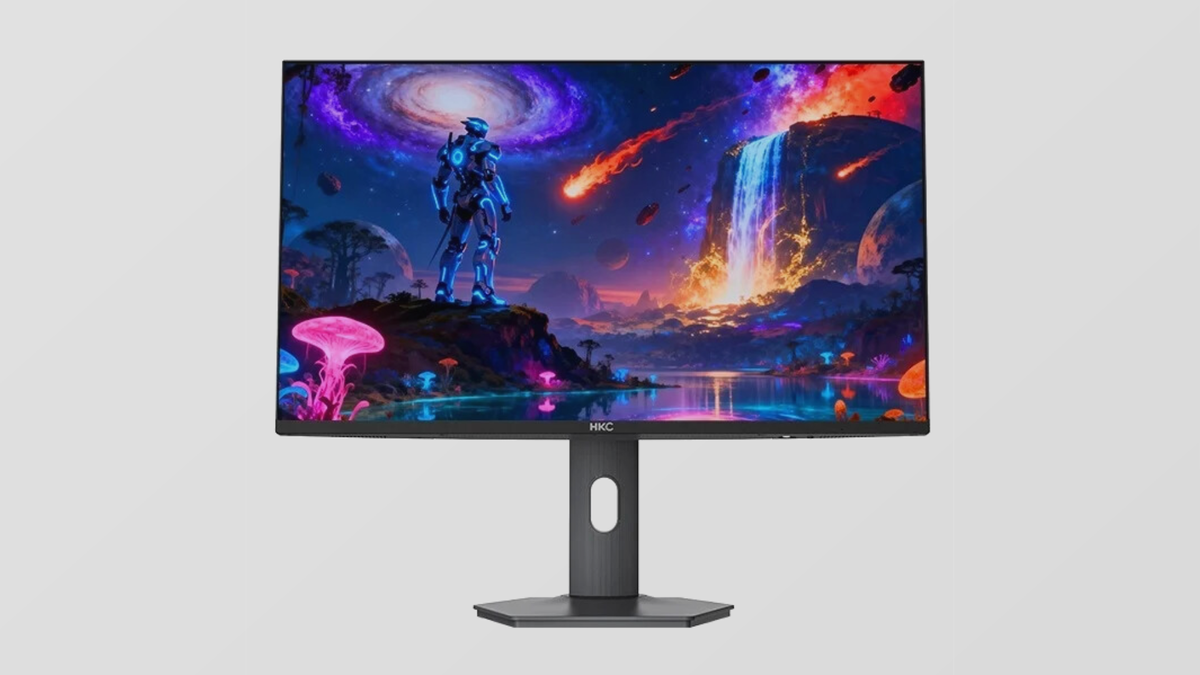
 English (US) ·
English (US) ·